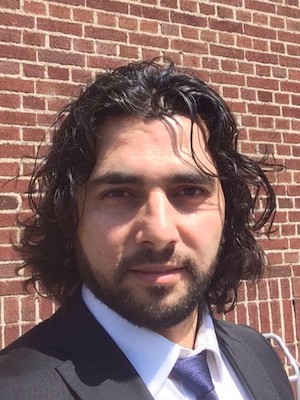On Feb. 6, 2023, at approximately 4:17 a.m., the first earthquake hit the town of Gaziantep, which lies in south-eastern Turkey near the border of Syria. This was the first and most destructive quake of that day, reaching a magnitude of 7.8 on the Richter scale. The second quake—nine hours later—read 7.5. These combined tremors devastated the area and its people, leaving those who did not perish homeless, grieving, in fear of aftershocks, and desperate to find survivors beneath the rubble. On February 20, two more significant earthquakes hit the region, with magnitudes of 6.3. and 5.8 respectively.
 Combined, these quakes have caused the death toll to climb to more than 47,000. This figure is expected to rise in the following weeks as more destroyed homes are discovered. The disaster—the deadliest in the region since the Erzincan earthquake of 1939—has left several million people displaced across Syria and Turkey.
Combined, these quakes have caused the death toll to climb to more than 47,000. This figure is expected to rise in the following weeks as more destroyed homes are discovered. The disaster—the deadliest in the region since the Erzincan earthquake of 1939—has left several million people displaced across Syria and Turkey.
On February 16, The Daily Orange spoke to Ahmet Celik of Syracuse University’s Turkish Student Association (TSA). He shared the different ways in which students, faculty, and administration on campus are processing and dealing with this devastating news. The University is working toward ensuring support for those affected by this disaster, and the TSA also has set up tables within the University’s Schine Student Center and Bird Library to raise money for relief funds through their donation website. These funds are being used for rescue, shelter, food, and medical assistance.
Ibrahim Kizil is President of TSA. A 2021 graduate of the School of Education’s Instructional Design, Development, and Evaluation program, he is currently a literacy education Ph.D. student. His wife Seyma is also taking a doctorate in literacy education and holds an M.S. in Teaching and Curriculum and a Certificate of Advanced Study in Designing Digital Instruction. We spoke to Ibrahim to get his perspective on this catastrophic event, which has affected his loved ones.
What is the current situation on the ground in Turkey, and how is your family coping?
Thousands of buildings collapsed after the first two big earthquakes. In these earthquakes, which affected 11 big cities in Turkey, approximately 15 million people were affected. There are hundreds of thousands of injured, and the number of deaths is approaching 50,000 at the moment, but it is expected to reach approximately 200,000. Millions of people whose homes were damaged have moved to other cities. The people who stayed have been living outside. Some people are living in tents, some in their cars.
My family lives in the area affected by the earthquake. Thank God they were healthy and safe, but they also have been living outside because earthquakes and aftershocks continue. Recently, people whose houses were not destroyed started to enter their houses and live. On Monday, when there were two earthquakes again, people went outside again. In the city of Hatay, which is in the earthquake zone, a few buildings that were not affected originally were destroyed by these last two earthquakes. Now there are almost no buildings left undestroyed in this city.
How would you describe the response by Turkey and the international community?
Currently, the Turkish government is sending emergency aid packages to people. AFAD, the official institution of the country, has thousands of officers in the region. Non-governmental organizations in Turkey are working actively. Additionally, many countries are supporting Turkey in this difficult time. Many international aid organizations have sent and continue to send aid.
How would you describe the response of the Syracuse community and how can one contribute to help with relief?
As the president of Turkish Student Association, together with my friends, I started a donation campaign by working with some offices across the University. Many officials, including Vice Provost Marcelle Haddix, have supported us and continue to do so. Since the first day, the School of Education’s Dean Chandler-Olcott, one of our literacy program’s professors, Dr. Zaline M. Roy-Campbell, and many other professors have contacted me and my wife, Seyma, via email or social media, making us feel that they are with us. We are so appreciative of all of these efforts.
The TSA is sending financial aid to Turkey. The community can help us by donating to our charity campaign and spreading the word.Beyond donating to our appeal, I would ask Syracuse University professors to reach out to affected students to give them psychological support. Our professors have reached out to us, and we were very happy. I think all affected students at SU need this support.
By Margaret Gilbert ’23
